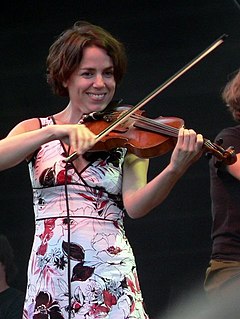A Quote by Gregory Benford
As we all saw in grade school, once you learn how to read a book, somebody is going to want to write one - that's how authors are made. Once we know how to read our own genetic code, someone is going to want to rewrite that 'text,' tinker with traits - play God, some would say.
Related Quotes
I didn't want to teach my kid how to read, so I used to read to him at night and close the book at the most interesting part. He said, “What happened then, daddy?” I said, “If you learn to read, you can find out. I'm too tired to read. I'll read to you tomorrow.” So, he had a need to want to learn how to read. Don't teach children how to read. Don't teach them mathematics. Give them a reason to want it. In school, they're working ass-backwards.
When you learn to read and write, it opens up opportunities for you to learn so many other things. When you learn to read, you can then read to learn. And it's the same thing with coding. If you learn to code, you can code to learn. Now some of the things you can learn are sort of obvious. You learn more about how computers work.
I got a new 4-track cassette recorder a year or so after high school. For a while I would just stare at it thinking, how am I going to do this if I don't play guitar or keyboards? How am I going to write and record a song if I don't know how to play any instruments? I mean, I played the violin, but I didn't know anything about how to work a 4-track.
I've been making a list of the things they don't teach you at school. They don't teach you how to love somebody. They don't teach you how to be famous. They don't teach you how to be rich or how to be poor. They don't teach you how to walk away from someone you don't love any longer. They don't teach you how to know what's going on in someone else's mind. They don't teach you what to say to someone who's dying. They don't teach you anything worth knowing.
I once thought that if I could ask God one question, I would ask how the universe began, because once I knew that, all the rest is simply equations. But as I got older I became less concerned with how the universe began. Rather, I would want to know why he started the universe. For once I knew that answer, then I would know the purpose of my own life.
How do you explain to somebody who doesn't understand that you don't build a library to read. A library is a resource. Something you go to, for reference, as and when. But also something you simply look at, because it gives you succour, answers to some idea of who you are or, more to the point, who you would like to be, who you will be once you own every book you need to own.
I see it as this: I send my kids to school not only to learn how to read and write and do math, but also to develop socially. So if there's a negative interaction between my child and another child, what I want to know is, how was it handled, what lessons came out of it, and, of course, is my child okay?
After I found out that I was playing music and that I'd have to learn how to read and write music, I started doing that about two years later. Finally, I said, "Oh, that means what I really want to do is to be a composer." But when I was coming up in Texas, there was segregation. There was no schools to go to. I taught myself how to read and how to start writing.




































